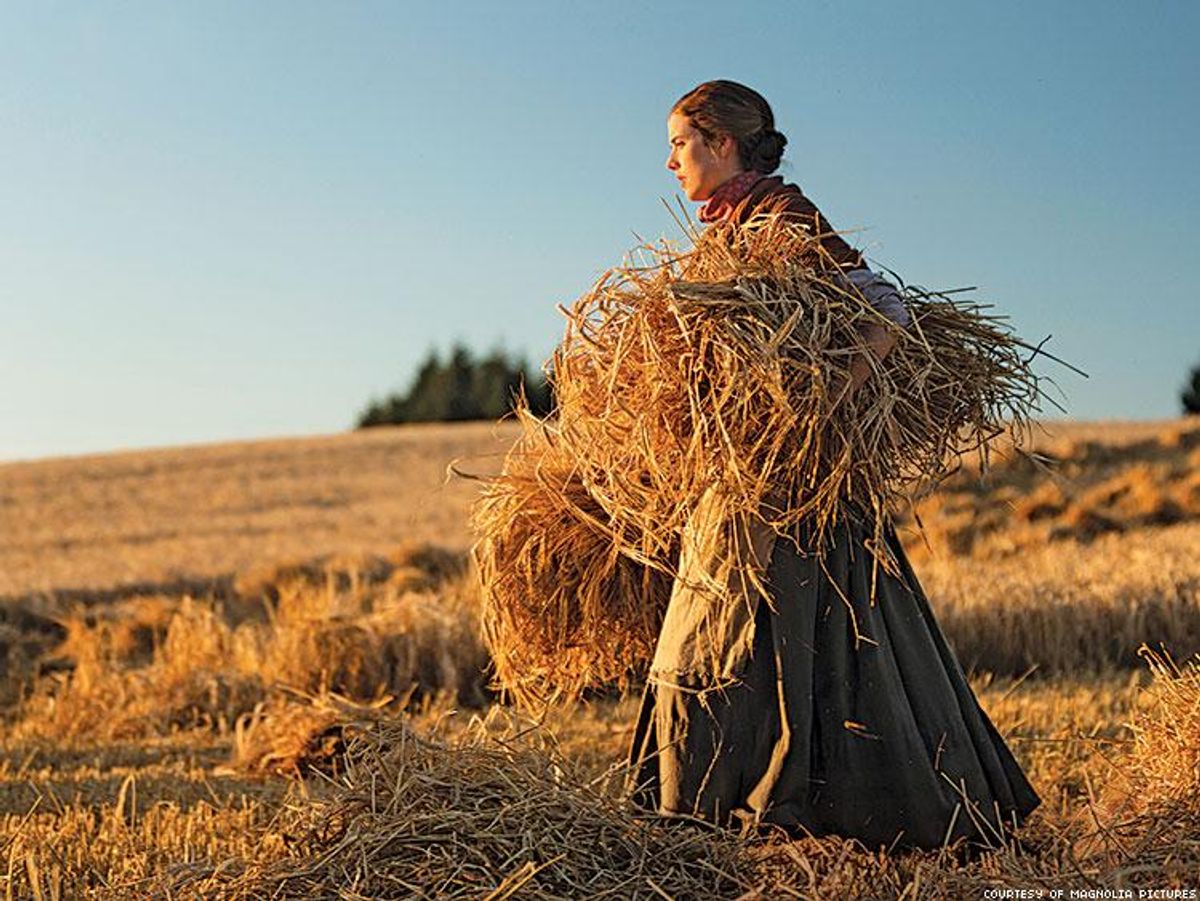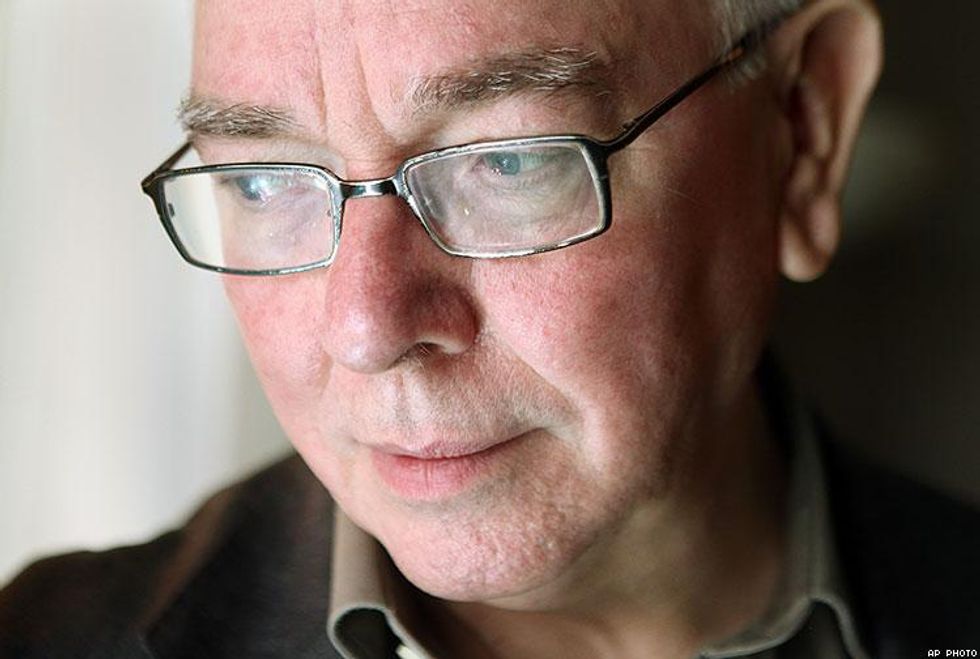Few openly gay artists have as tortured a relationship with their sexuality as film director Terence Davies.
"It's something I'll never be able to accept until I die. It's ruined my life," says Davies, 70. "It's so sexually predatory. If you base everything on how good-looking you are, how reductive is that? What happens when you're no longer gorgeous? What do you do then?"
So he's not exactly a poster child for gay pride. But ever since he started making short films in the early '80s, Davies has turned his ambivalence about being gay and his feelings of alienation into personal, poetic cinema. From his autobiographical features Distant Voices, Still Lives (1988) and The Long Day Closes (1992), a poignant evocation of adolescent sexual longing, to his latest, the epic but intimate Sunset Song, Davies has created a body of work of such visual and textual richness that he's considered Britain's greatest living auteur.
Sunset Song premiered at the Toronto International Film Festival and is being released by Magnolia Pictures. Davies adapted Scottish author Lewis Grassic Gibbon's 1932 novel that chronicles the struggle of an educated young woman, Chris Guthrie (former fashion model Agyness Deyn), to run her family's farm in rural northeast Scotland at the dawn of the 20th century. Along with the joys of marriage and motherhood, Chris faces personal tragedy, physical hardship, and the rumbling threat of the Great War.
As with The Neon Bible (1995), The House of Mirth (2000) and The Deep Blue Sea (2011), Sunset Song is anchored by a screen heroine every bit as formidable as the characters once commanded by Bette Davis and Joan Crawford. One can easily read Davies's penchant for depicting unconventional women constrained by social mores as stand-ins for queer ostracism. That will continue with his next, already finished film, A Quiet Passion, starring Cynthia Nixon as 19th-century American poet Emily Dickinson.

Besides delivering another indelible heroine, Sunset Song offers a searing indictment of the rush to war and its devastating human cost.
"It scarred Europe even to this day. Everyone across Europe lost someone," says Davies. "The corollary to that is Britain's obsession with the Second World War because that's the last time we were important. It's pathetic, really. It's a long time ago. We're not an empire anymore. We're a silly little island off the coast of Europe which should be on casters."
Yet Davies is quick to point out that Britain is the only country to produce a generation of great poets from the slaughter of the trenches. He quotes from memory a stanza from "Concert-Interpretation" by World War I survivor Siegfried Sassoon, about the first public performance of Stravinsky's The Rite of Spring.
And in the Gallery, cargoed to capacity,
No tremor bodes eruptions and alarms.
They are listening to this not-quite-new
audacity
As though it were by someone dead,--
like Brahms.
Davies recites these lines with an animated air. It's easy to picture him as an intelligent, sensitive boy growing up in 1950s Liverpool. Physically and emotionally abused by his father -- "I really believed I was absolutely mad. Praying until my knees bled, 'What can I do to be forgiven?' Because in England [homosexuality] was a criminal offense," he says -- he took refuge in movies.
"I grew up at a time when movies were all about heroines: All That Heaven Allows, Love Is a Many-Splendored Thing, Magnificent Obsession." he says. "It seemed to me to be perfectly natural, just the way it seemed perfectly natural that people in the middle of a film would burst into a song-and-dance routine. I thought it was fabulous. I thought America was like that, because they did it all the time."
By contrast, Sunset Song isn't a flight into fantasy. It is grounded in the land: at once yielding and unforgiving, both beautiful and horrific.



















































































Viral post saying Republicans 'have two daddies now' has MAGA hot and bothered